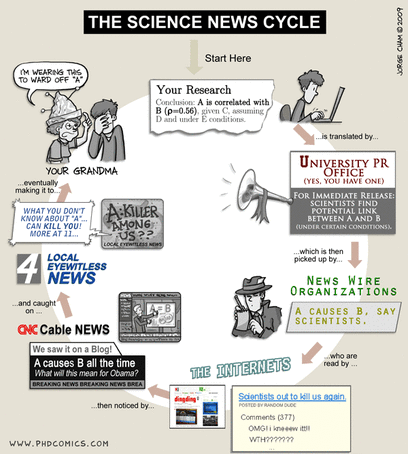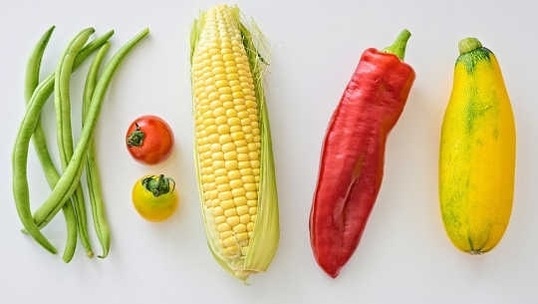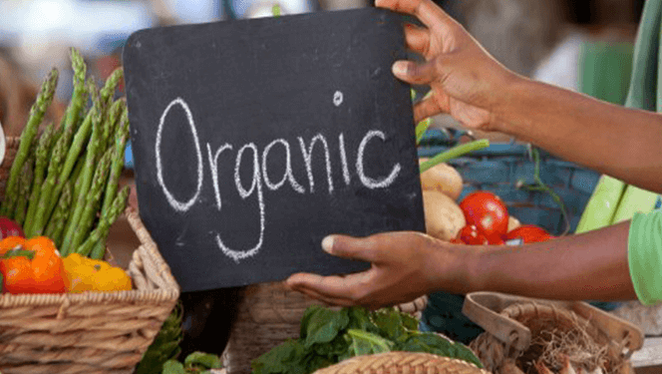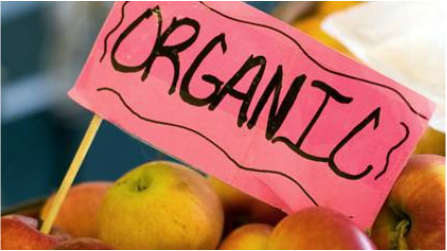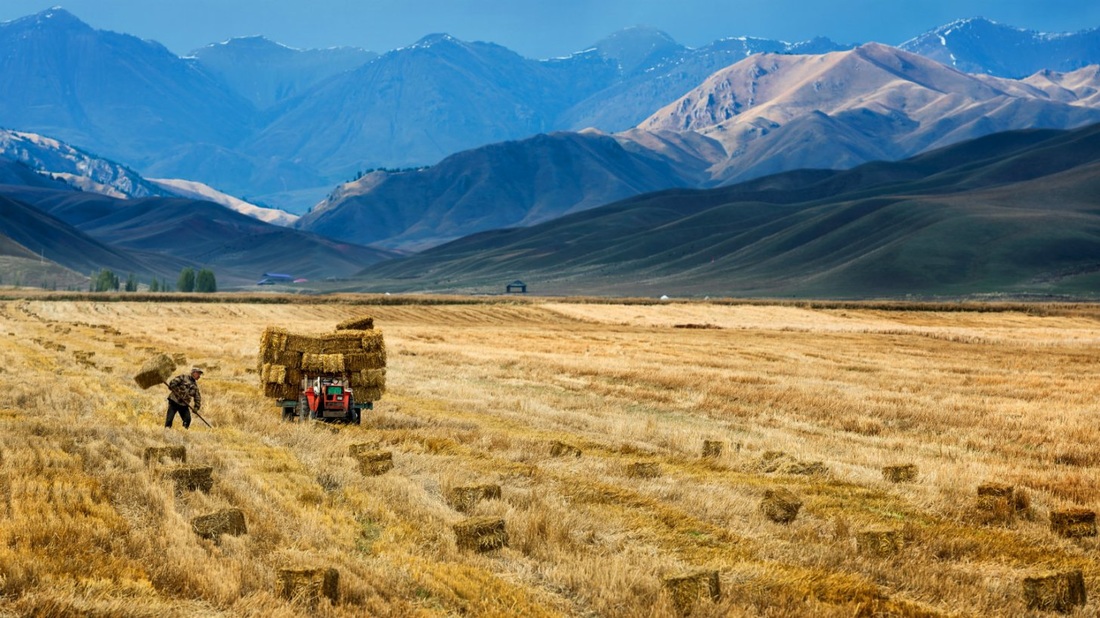News Articles
|
In March 2017 a study we published in Science Advances received some attention and was picked up by several news outlets. Our study highlighted the ‘Many shades of gray’ of organic agriculture, concluding that organic has some benefits, some costs and many uncertainties. In an accompanying piece in The Conversation we concluded that despite some shortcomings, in the end ‘Organic farming matters – just not in the way you think’. The media, instead, mostly focused on the negatives, producing headlines like ‘Organic food may be good for your health but it will not save the environment’ or ‘Organic food may NOT be good for you or the planet, shock study finds’.
While talking to journalists and seeing how our conclusions were interpreted and condensed into headlines, I was reminded again of this fantastic comic by the great PhD comics. |
So here again, in my own condensed version: Yes, organic agriculture is not perfect. But no, organic agriculture will not kill you or the planet. And if you want to remember one thing from our study, let it be this: we need more, not less organic.
A friend (who is an organic farmer herself) summarized the conclusions from our study in a very concise manner: “If you think organic isn't worth it, the take-home message is that organic practices are part of a movement towards a more sustainable food system. If you are pro-organic, the take-home message is that the benefits of organic agriculture are uncertain and context-dependent, and that organic agriculture alone will not yield a sustainable food system.”
|
If you want to read our own summary of the key conclusions from our study, check out our piece in the Conversation:
Organic farming matters - just not in the way you think. And here some radio interviews where I tried to explain our study in my own words:
CBC, BC Almanac CKNW with Jill Bennett Radio NZ, Sunday Morning with Wallace Chapman |
And if you want to read how the organic community (who produced some of most nuanced pieces written about our study) responded, check out these pieces:
|
Here some of the other media coverage our study received:
Study finds organic needs to stick to its roots, CBC News
Organic food 'not automatically better', study finds, Globe and Mail
Organic farming doesn't always deliver benefits, UBC study says, Vancouver Sun
Organic growth good for small farm survival: UBC study, Business in Vancouver
Organic food alone cannot provide a sustainable future, IFL Science
Organic farming isn't the 'holy grail' of sustainable agriculture, study finds, Fusion
Organic food isn't all its cracked up to be, New York Post
Organic food isn't all its cracked up to be, Fox News
Is organic always better? It's not as clear-cut as you might think, Grist
Eating organic 'won't save the planet' - and it's not that great for you either, Metro
We need more organic farming!, The Ecologist
Is organic farming 'holy grail' to environmental, food scarcity problems? Study says no, Genetic Literacy Project
17 shades of grey - is organic production environmentally friendly?, Estonian Public Broadcast [in Estonian]
Study finds organic's sustainability 'context-dependent', Manitoba Co-Operator
Organic agriculture no panacea, study, Manitoba Co-Operator
Organic not always equivalent to sustainable, Lancaster Farming
Report questions the environmental benefits of organic farming, Farmers Weekly
Organic claims miss bigger picture, study says, Ag Web
Neue Studie: Ökolandbau als Vorbild mit Schattenseiten, Biomarkt.info [in German]
Organic farming matters - just not in the way you think, CNN News (re-published our Conversation piece)
Organic farming matters - just not in the way you think, Asia Times (re-published our Conversation piece)
Organic farming matters - just not in the way you think, Econo Times (re-published our Conversation piece)
Organic farming matters - just not in the way you think, Huffington Post (re-published our Conversation piece)
Study finds organic needs to stick to its roots, CBC News
Organic food 'not automatically better', study finds, Globe and Mail
Organic farming doesn't always deliver benefits, UBC study says, Vancouver Sun
Organic growth good for small farm survival: UBC study, Business in Vancouver
Organic food alone cannot provide a sustainable future, IFL Science
Organic farming isn't the 'holy grail' of sustainable agriculture, study finds, Fusion
Organic food isn't all its cracked up to be, New York Post
Organic food isn't all its cracked up to be, Fox News
Is organic always better? It's not as clear-cut as you might think, Grist
Eating organic 'won't save the planet' - and it's not that great for you either, Metro
We need more organic farming!, The Ecologist
Is organic farming 'holy grail' to environmental, food scarcity problems? Study says no, Genetic Literacy Project
17 shades of grey - is organic production environmentally friendly?, Estonian Public Broadcast [in Estonian]
Study finds organic's sustainability 'context-dependent', Manitoba Co-Operator
Organic agriculture no panacea, study, Manitoba Co-Operator
Organic not always equivalent to sustainable, Lancaster Farming
Report questions the environmental benefits of organic farming, Farmers Weekly
Organic claims miss bigger picture, study says, Ag Web
Neue Studie: Ökolandbau als Vorbild mit Schattenseiten, Biomarkt.info [in German]
Organic farming matters - just not in the way you think, CNN News (re-published our Conversation piece)
Organic farming matters - just not in the way you think, Asia Times (re-published our Conversation piece)
Organic farming matters - just not in the way you think, Econo Times (re-published our Conversation piece)
Organic farming matters - just not in the way you think, Huffington Post (re-published our Conversation piece)
Our study on organic yields that was published in Nature in April 2012 also received a lot of press coverage. Similarly as in 2017, a lot of the nuances of our conclusions got lost somewhere on the way from our paper to the media. Some news outlets interpreted our study as showing that organic could not feed the world, while others said our study showed organic could feed the world. As you can imagine both interpretations have little to do with what our study actually says. But some news coverage also got the message of our paper right and did a good job at reporting about our results and its implications.
|
Check out my take on our organic yield paper and the media coverage about it in The Conversation (from May 2012): There is nothing black or white about organic agriculture
|
My favourite food writer Nathanael Johnson on the yields of organic agriculture in Grist (from October 2015): Do industrial agriculture methods actually yield more food per acre than organic ones?
|
This is a collection of press coverage of our study. I am including both great and pretty bad pieces here so you can come to your own conclusions:
Study points to roles for industry and organic in agriculture, Dot Earth, NY Times
Will organic agriculture fail to feed the world?, Scientific American
Organic farming, carefully done, can be efficient, LA Times
The war between organic and conventional farming misses the point, The Atlantic
Time to stop worrying and learn to love industrial agriculture?, Mother Jones
Quand l'agriculture biologique est aussi productive que l'agriculture traditionelle, Le Devoir [in French]
Une étude vante l'agriculture mixte, La Presse [in French]
Time to leave behind organic vs. conventional agriculture debate, McGill researchers say, Montreal Gazette
It will take the best of organic and conventional farming to feed the world, The Guardian
The environmental footprint of organic vs. conventional food, The Washington Post
Organic yields lag behind industrial farming, but that's not the whole story, Mongabay
Study: Most organic crops fall short on yields, Voice of America
Study: Organic yields 25% lower than conventional farming, CNN News
Food: Organic growth?, BBC
How land-efficient is organic agriculture?, The Breakthrough Institute
Whole Food Blues: Why organic agriculture may not be so sustainable, TIME
Are crop yields the Achilles heel of organic farming?, Christian Science Monitor
Bio für die Welt?, Süddeutsche Zeitung [in German]
Landwirtschaft: Ertrag versus Bio?, ORF [in German]
Study points to roles for industry and organic in agriculture, Dot Earth, NY Times
Will organic agriculture fail to feed the world?, Scientific American
Organic farming, carefully done, can be efficient, LA Times
The war between organic and conventional farming misses the point, The Atlantic
Time to stop worrying and learn to love industrial agriculture?, Mother Jones
Quand l'agriculture biologique est aussi productive que l'agriculture traditionelle, Le Devoir [in French]
Une étude vante l'agriculture mixte, La Presse [in French]
Time to leave behind organic vs. conventional agriculture debate, McGill researchers say, Montreal Gazette
It will take the best of organic and conventional farming to feed the world, The Guardian
The environmental footprint of organic vs. conventional food, The Washington Post
Organic yields lag behind industrial farming, but that's not the whole story, Mongabay
Study: Most organic crops fall short on yields, Voice of America
Study: Organic yields 25% lower than conventional farming, CNN News
Food: Organic growth?, BBC
How land-efficient is organic agriculture?, The Breakthrough Institute
Whole Food Blues: Why organic agriculture may not be so sustainable, TIME
Are crop yields the Achilles heel of organic farming?, Christian Science Monitor
Bio für die Welt?, Süddeutsche Zeitung [in German]
Landwirtschaft: Ertrag versus Bio?, ORF [in German]
TV
Interview with Steve Paikin on The Agenda on organic agriculture, TV Ontario, May 2, 2016.
Radio
On Sunday Morning with Wallace Chapman, Radio New Zealand, March 26, 2017
On The Morning News with Bruce Kenyon, News Talk 770 Radio in Calgary, March 14, 2017
On Evenings with Kirk La Pointe, Roundhouse Radio in Vancouver, March 14, 2017
On BC Almanac, CBC, March 13, 2017 (starts at ca. minute 26).
On The Jill Bennett Show, CKNW in Vancouver, March 12, 2017
On The Link with Marc Montgomery, Radio Canada International, May 1, 2012.
On The Morning News with Bruce Kenyon, News Talk 770 Radio in Calgary, March 14, 2017
On Evenings with Kirk La Pointe, Roundhouse Radio in Vancouver, March 14, 2017
On BC Almanac, CBC, March 13, 2017 (starts at ca. minute 26).
On The Jill Bennett Show, CKNW in Vancouver, March 12, 2017
On The Link with Marc Montgomery, Radio Canada International, May 1, 2012.
Books
Sarah Elton interviewed me and covered my research in her great book Consumed: Food for a Finite Planet, The University of Chicago Press.
You can also find a summary of my media activities on my media expert profile on ExpertWomen.ca
